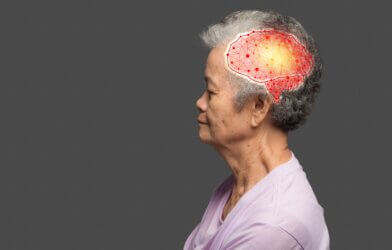For decades, scientists have focused on old age as the time when mental sharpness and brain health typically take a nosedive. But a growing body of research suggests that we may be overlooking a critical period that could shape our cognitive futures: middle age.
Defined loosely as the ages between 40 and 65, midlife has long been seen as a transitional phase before the challenges of older adulthood set in. However, emerging evidence from human and animal studies indicates that the middle-aged brain undergoes a spectrum of changes that could have profound implications for future mental function.
The research team, led by Sebastian Dohm-Hansen and Yvonne M. Nolan of University College Cork in Ireland, combed through findings from multiple levels of analysis—ranging from cognition and brain imaging to genes and proteins—to paint a picture of the “middle-aging” brain. Their comprehensive review is now published in the journal Trends in Neurosciences.
“Middle age has historically been understudied compared to more advanced age, but is emerging as marking a possible shift in brain aging that is predictive of future cognitive health, while still being amenable to intervention,” the authors write.
Non-Linear Brain Changes In Middle Age
The review highlights that during middle age, the brain experiences a complex array of molecular, cellular, and structural changes, many of which have been linked to cognitive decline. One striking pattern that emerges is the prevalence of non-linear changes during midlife. While some aspects of brain aging, such as the gradual accumulation of certain molecules, progress steadily throughout adulthood, others seem to accelerate, plateau, or even reverse course specifically in the fifth and sixth decades of life.
Take episodic memory, our ability to recall everyday events. Large-scale studies have found that this crucial cognitive skill not only declines faster in middle age compared to young adulthood but also becomes more unstable, with some individuals starting to show abrupt changes that may foreshadow future impairment.
Mirroring these mental shifts are a host of brain alterations detected by advanced neuroimaging. The structural and functional connectivity of key neural networks, especially those involved in attention and self-referential thought, appears to peak around age 50 and then deteriorate. The hippocampus, a seahorse-shaped structure essential for memory, begins to shrink at an accelerated pace. White matter tracts that relay signals across the brain start to fray.

Cognitive Decline Implications
But the middle-aged brain isn’t just losing its edge; it’s also undergoing a dramatic molecular upheaval. Gene expression patterns in the hippocampus and prefrontal cortex, two regions crucial for higher cognition, shift abruptly in ways that may compromise neural communication and ramp up inflammation.
Intriguingly, some of these changes mirror those seen in brains affected by Alzheimer’s disease.
Perhaps most surprisingly, the aging trajectories of the brain and body appear to be deeply intertwined. Substances circulating in the blood during midlife, especially those involved in inflammation, have been found to predict cognitive decline up to two decades later. In a striking example, a large study showed that people’s biological age at 45, inferred from various clinical measures, was tied to their brain health at 70.
While the review paints a complex picture of the middle-aged brain, it also offers hope for interventions that could promote healthy cognitive aging. The authors suggest that exercise, for instance, may be a promising avenue for future research. “In both young and middle-aged adult [mice], brain plasticity-related pathways have been found to be enriched in the plasma protemic response to acute exercise, suggesting that the results may extend to humans. Studying the intersection of aging- and exercise-related molecular processes could unveil new therapeutic targets,” they write.
However, the researchers also acknowledge that much more work is needed to fully understand the intricacies of brain aging, particularly when it comes to sex differences. Women, for example, have a higher risk of developing dementia compared to men, and the underlying reasons for this disparity remain largely unknown.
‘Crucial Window Of Time’
Looking ahead, the authors stress the importance of identifying novel therapeutic targets to mitigate unhealthy cognitive aging. They believe that by focusing more research efforts on the middle-aged brain, scientists may uncover new biomarkers and interventions that could help combat cognitive decline in an increasingly aging global population.
“We argue that applying recent trends in aging research to this period of life could reveal novel biomarkers and possible interventions to combat cognitive decline in an increasingly older global population,” the authors conclude.
As our understanding of the middle-aged brain continues to evolve, it is becoming increasingly clear that this crucial window of time may hold the key to unlocking a healthier cognitive future for millions of people worldwide. By shedding light on the complex interplay of factors that shape brain health during this pivotal period, researchers are paving the way for more targeted and effective interventions that could help us all maintain our mental sharpness well into our golden years.












